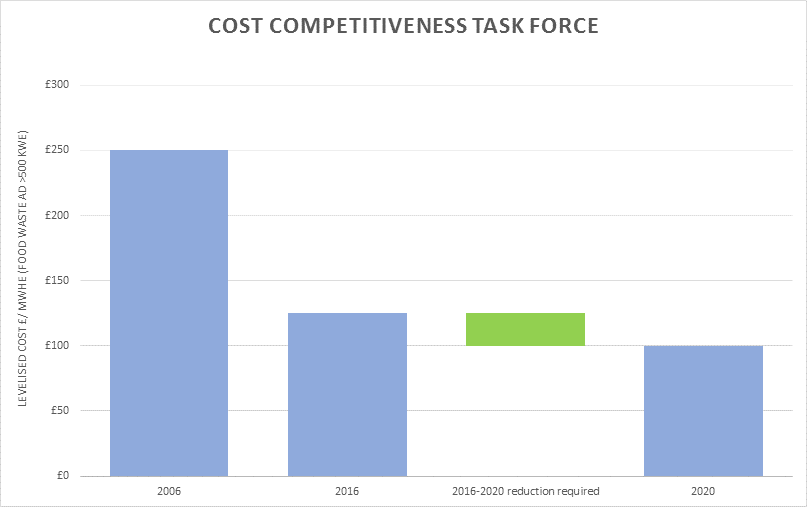The Environment Agency has updated its Resource Frameworks guidance, which will affect digestate management from…
ADBA unveils cost competitiveness task force
The anaerobic digestion (AD) industry outside of the water sector has grown by over 600% in the past five years, partly thanks to innovation from world class UK researchers. ADBA has appealed for academia to focus their current efforts behind delivering major improvements which would put the cost of AD on par with the cost of energy from Hinkley Point C.
The call came at ADBA’s two day Research & Innovation Forum 2016 in York last week, which centred on industry efforts to drive up operational efficiency and drive down costs. As incentives fall, academia will be instrumental in working in partnership with the AD industry to ensure UK operations continue to thrive while we position ourselves as world leaders in a global biogas market worth billions.
ADBA's Chief Executive, Charlotte Morton, commented:
Falling incentives and unworkable funding caps hinder renewable technologies’ efforts to scale and improve their cost competitiveness.
With ever limited support from government, therefore, the AD industry is seizing the initiative by challenging the expertise of the UK’s world class researchers to help find innovations which will revolutionise performance even more, such as new sources of input, improvements in operational performance, more valuable outputs, to reduce the overall cost of production.
During our annual Research and Innovation Forum this week, which brings together academia and businesses to collaborate on key AD priorities, we unveiled our Cost Competitiveness Task Force. With the right support, this body aims to establish the means by which industry can reduce the cost of producing its energy by at least five per cent each year between now and 2020.
If the AD industry is to reduce ‘levelised costs’* to £100/MWh by 2020, then five key elements will be instrumental in reducing costs to a par with new nuclear:
- Additional investment in R&I – helping to hone, adapt and upgrade AD technology to improve efficiency;
- Government action to implement segregated food waste collections – unlocking valuable new feedstock;
- Recognition of and training on digestate – improving soil quality, crop yields, nutrient availability and soil structure;
- Increased public & business awareness of AD – driving up recycling rates and securing additional investment; and
- Policy certainty and ambition – ensuring a policy regime which offers the certainty for further growth and investment.

* ‘Levelised costs’ represent the cost of generating, over the lifetime of a project, each MWh of electricity. So improvements in operational performance can be as important as any changes in cost.



